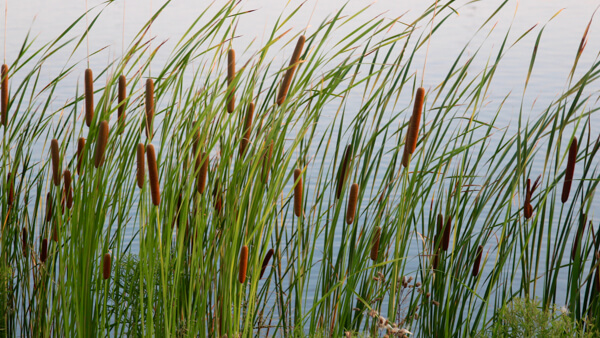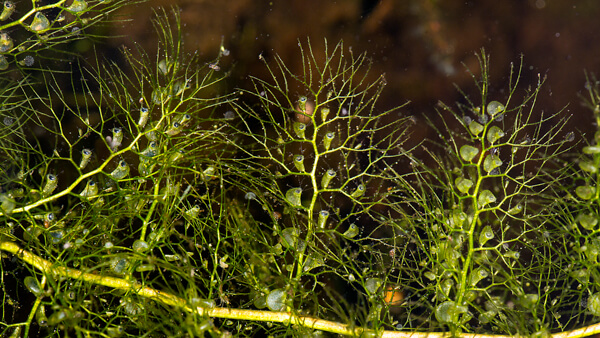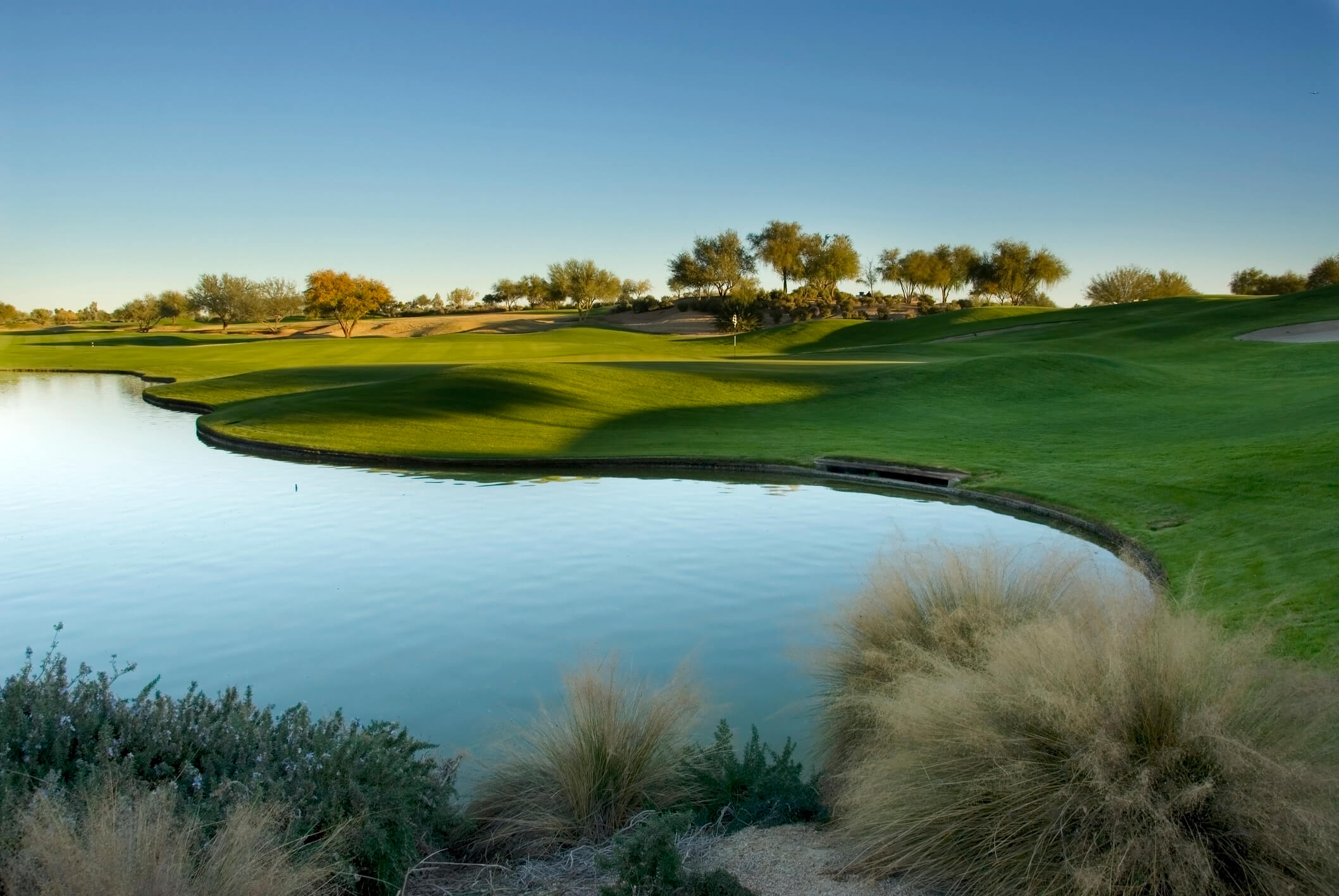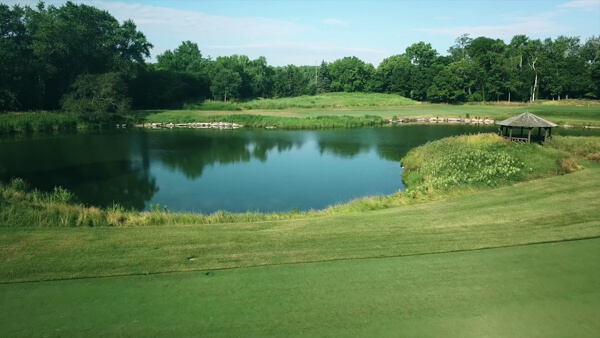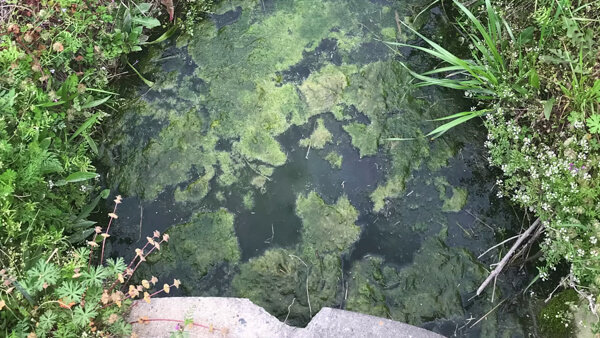Why You Need to Manage Golf Course Irrigation Water
Today we’re going to look at what may be lurking in those ponds or lakes or irrigation systems that could overall negatively impact the turf health or decrease the experience your patrons have when they go out to play a round.
There are many, many reasons why it's important to manage golf course irrigation waters. We're going to put them in three broad categories today and look at each one in-depth. The first category is aesthetics, next is functionality, and last is overall water quality.
Aesthetics
Appearance
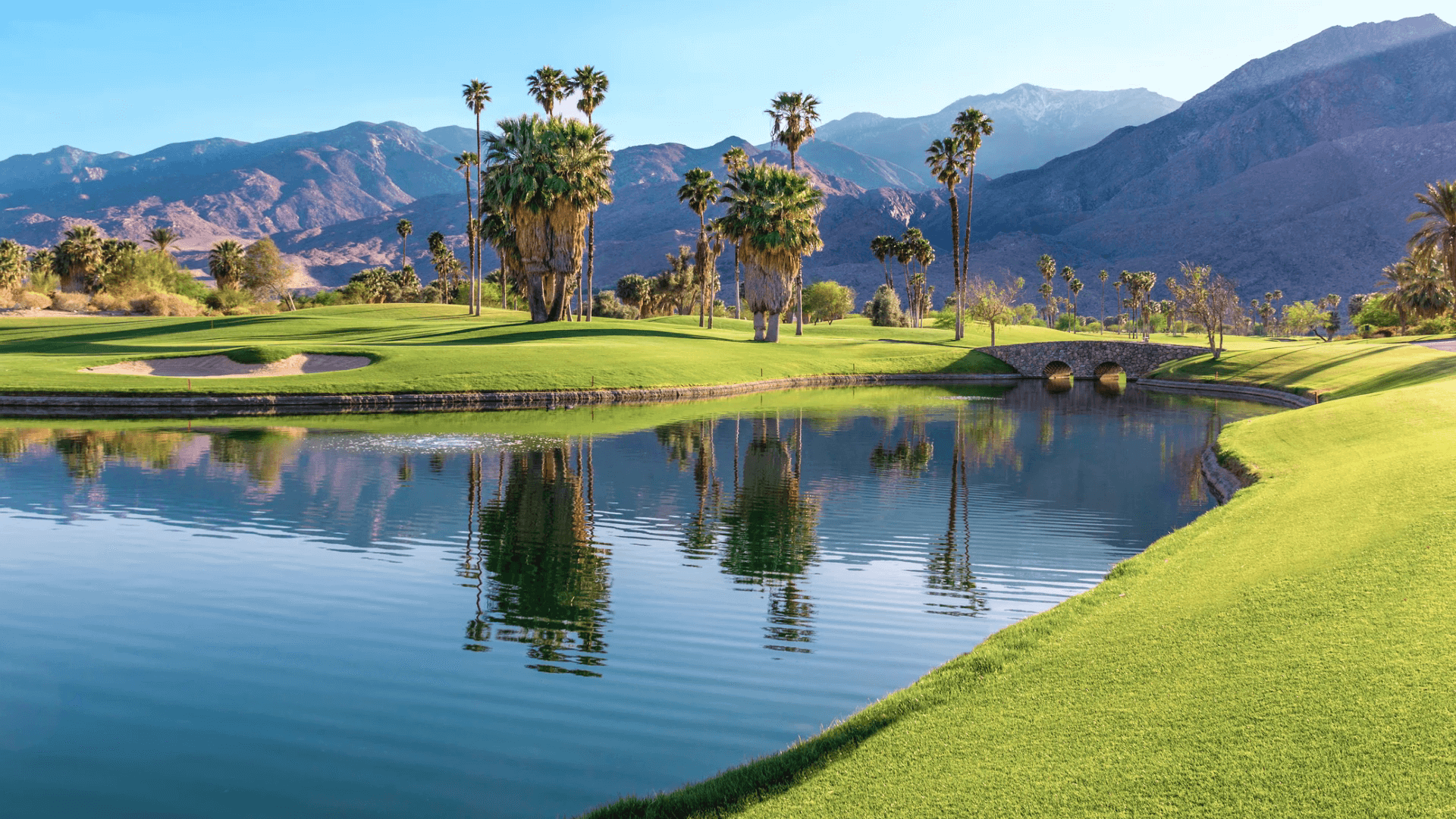
We’ll start with aesthetics because, let's be honest, golfers like to see a nice looking pond. You spend a lot of time on the turf grass making sure that's nice and groomed and looking great. People like to see that same effort with the water ponds, water features, water hazards as well. Your golfers are looking for nice clean clear blue ponds. But unfortunately if you get too many weeds or algae in there, your ponds can start looking really murky. Scums and mats can also decrease the overall appearance of those systems.
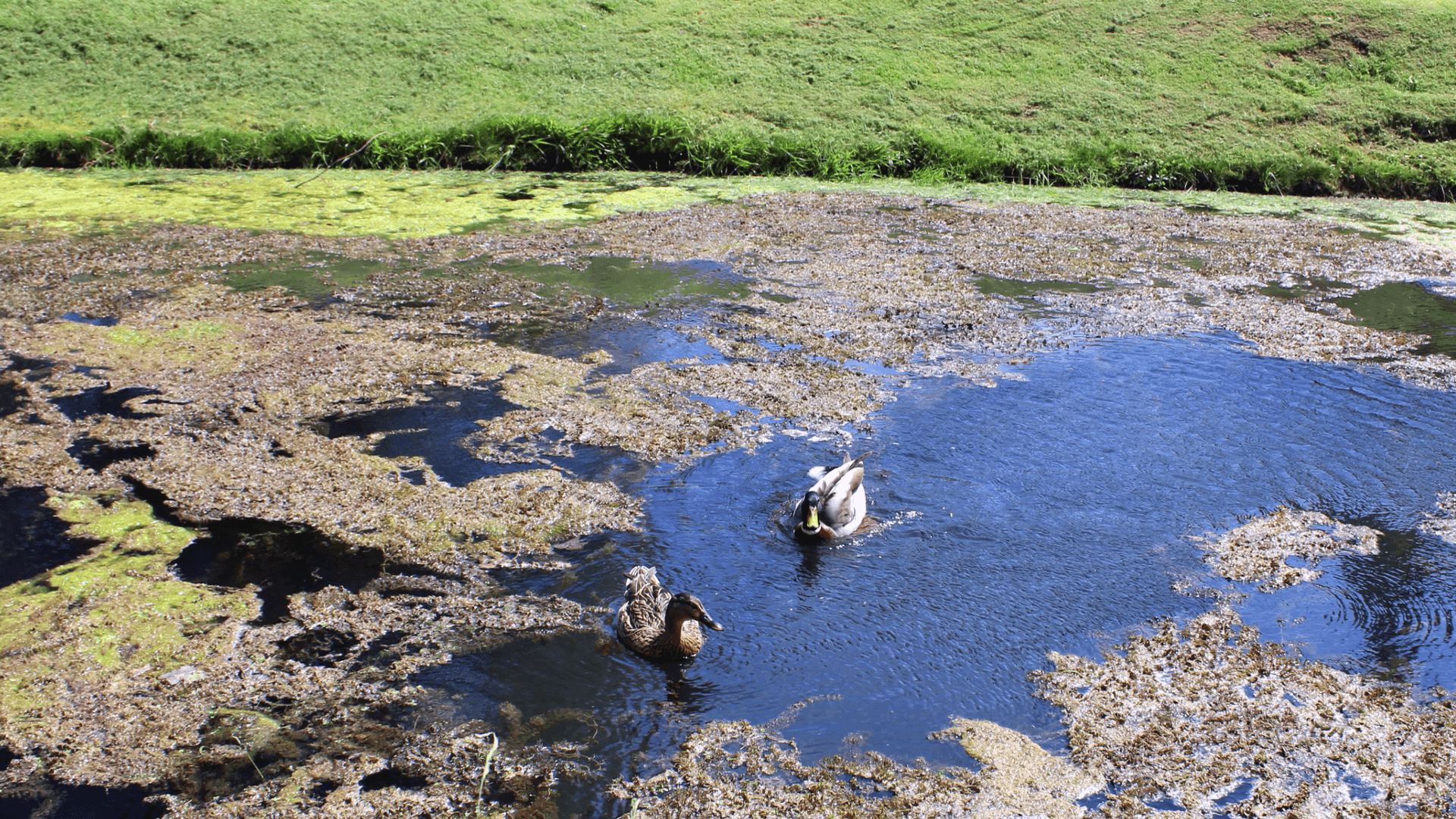
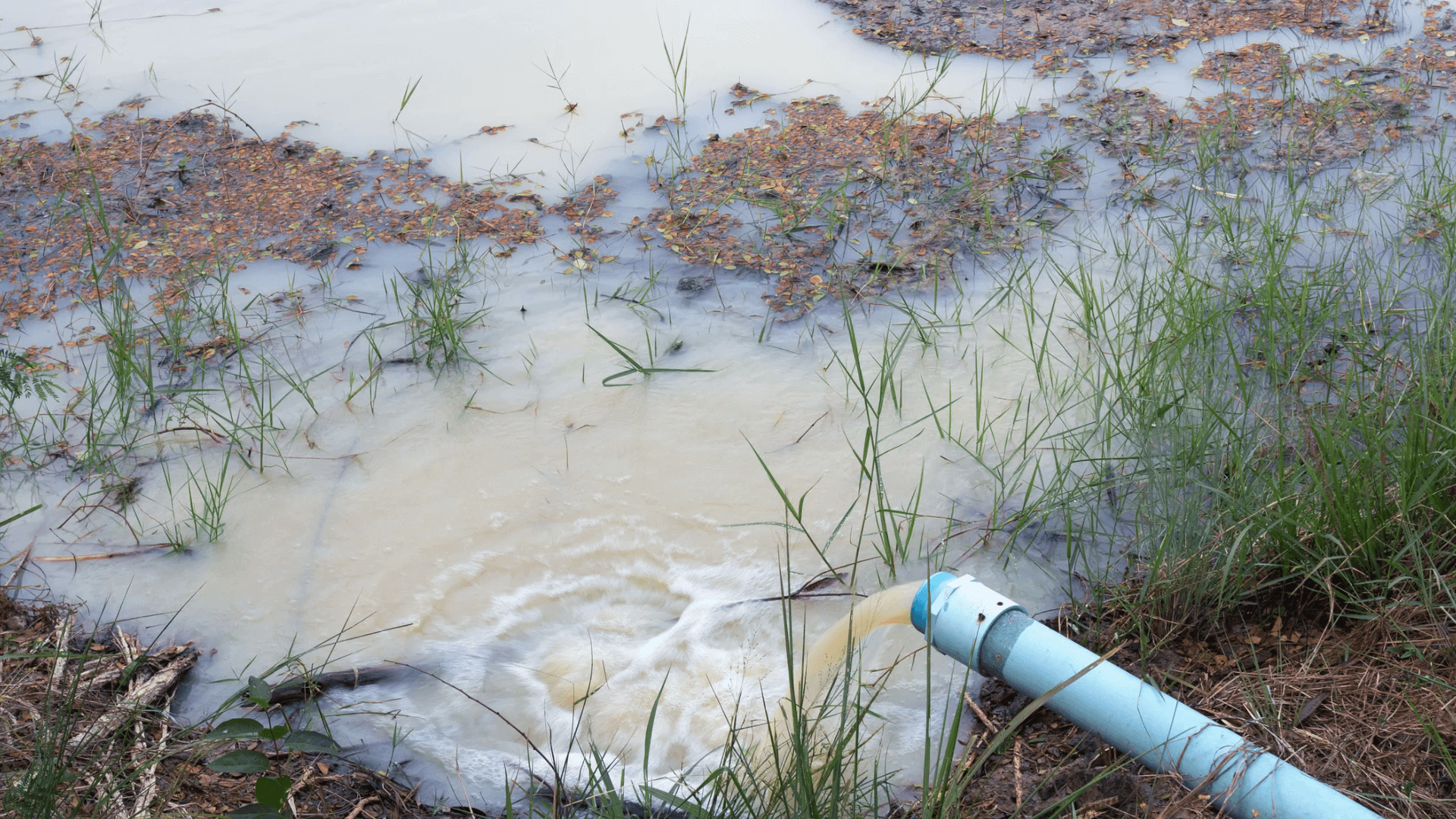
Smell
But aesthetics is more than just that appearance. Aesthetics can go into the smells as well. If you go anaerobic or anoxic down in the bottom it can cause the release of gasses like hydrogen sulfite, which can make your course smell like a swamp or a bog.
Additionally, some of these algae can actually produce taste and odor compounds that have been described as vile or pig pen as well. You definitely don't want people thinking “oh that pond smells like a pig pen,” so your aesthetics (both visual and smells) are important to control.
Safety
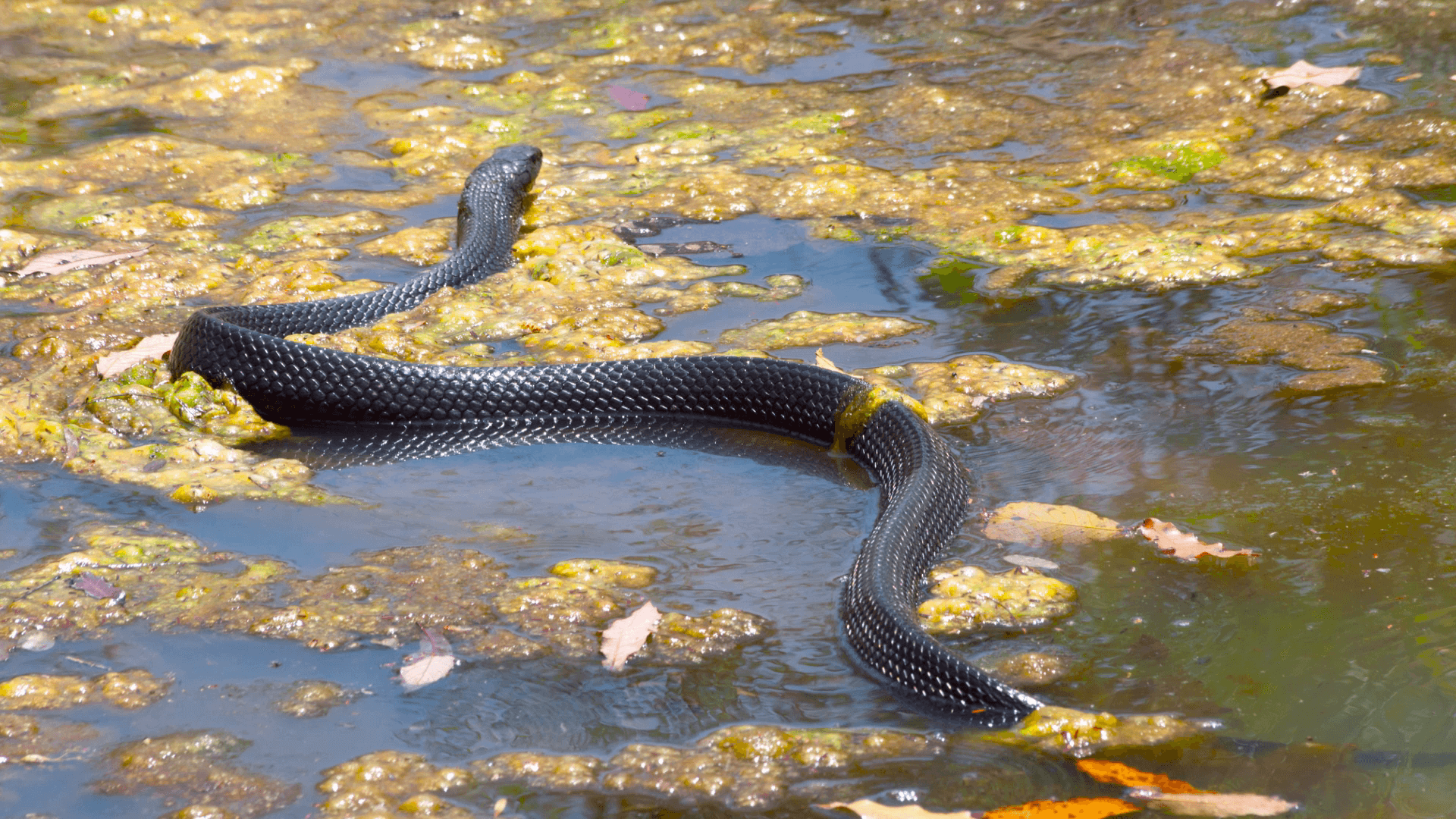
Safety is another aspect of aesthetics that you don’t want to overlook. If you have a tangled mess of weeds around the outside of the pond people can't get to their balls. More importantly, that area could harbor snakes or alligators and be a danger to golfers trying to get in there. In addition, overgrown areas near ponds can harbor biting insects like mosquitoes or flies.
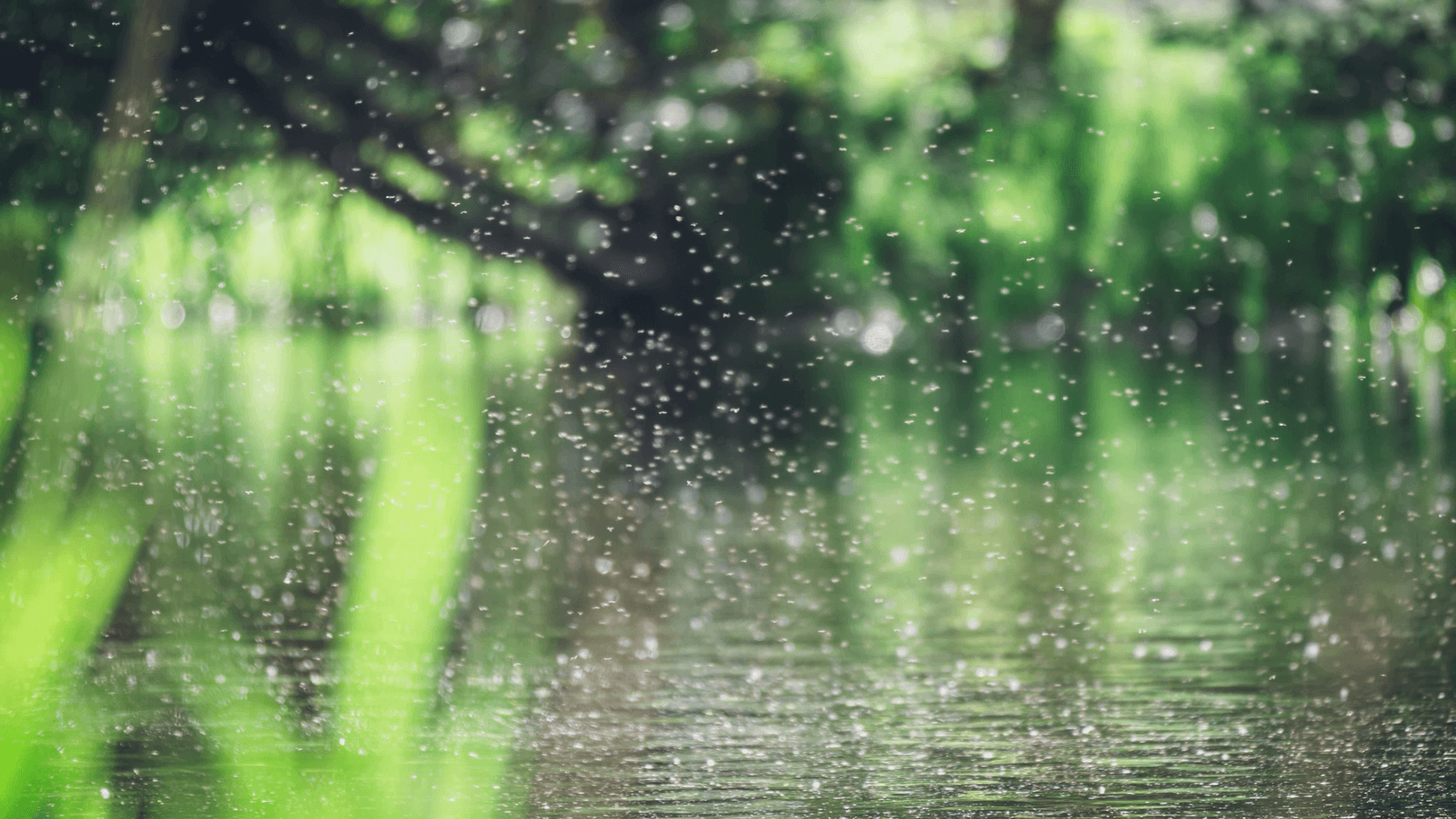
So if you have stagnant or dead zones or too much organic matter built up in there you can have biting insects emerging and swarming your patrons as well. Certainly not the experience you want your golfers to have, right?
So aesthetics very important aspect of managing golf course irrigation waters, and there are a lot of dimensions to the aesthetics category.
Functionality
The next category we want talk about is functionality. How can we keep these irrigation systems at top functionality?
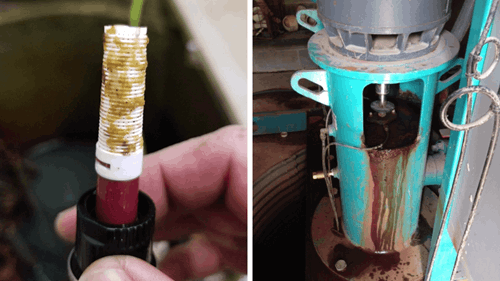
Too many weeds or algae in these systems leads to:
- clogged pipes, intakes, and screens that bring in the water
- decreased flow
- decreased ability to move water and irrigate through the system
- decreased storage volume of water in the pond or irrigation system
- long-term algae buildup in the irrigation pipes
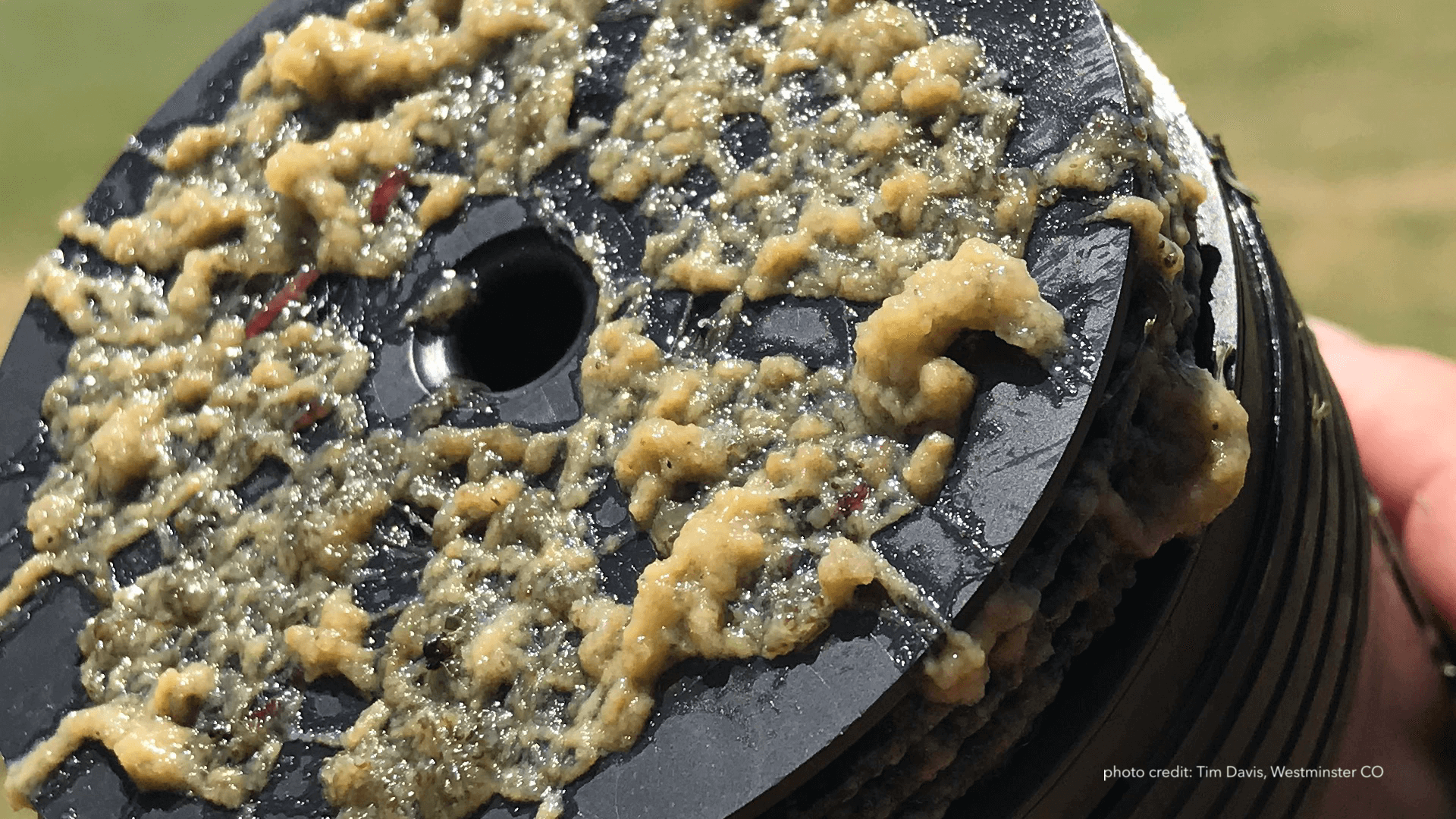
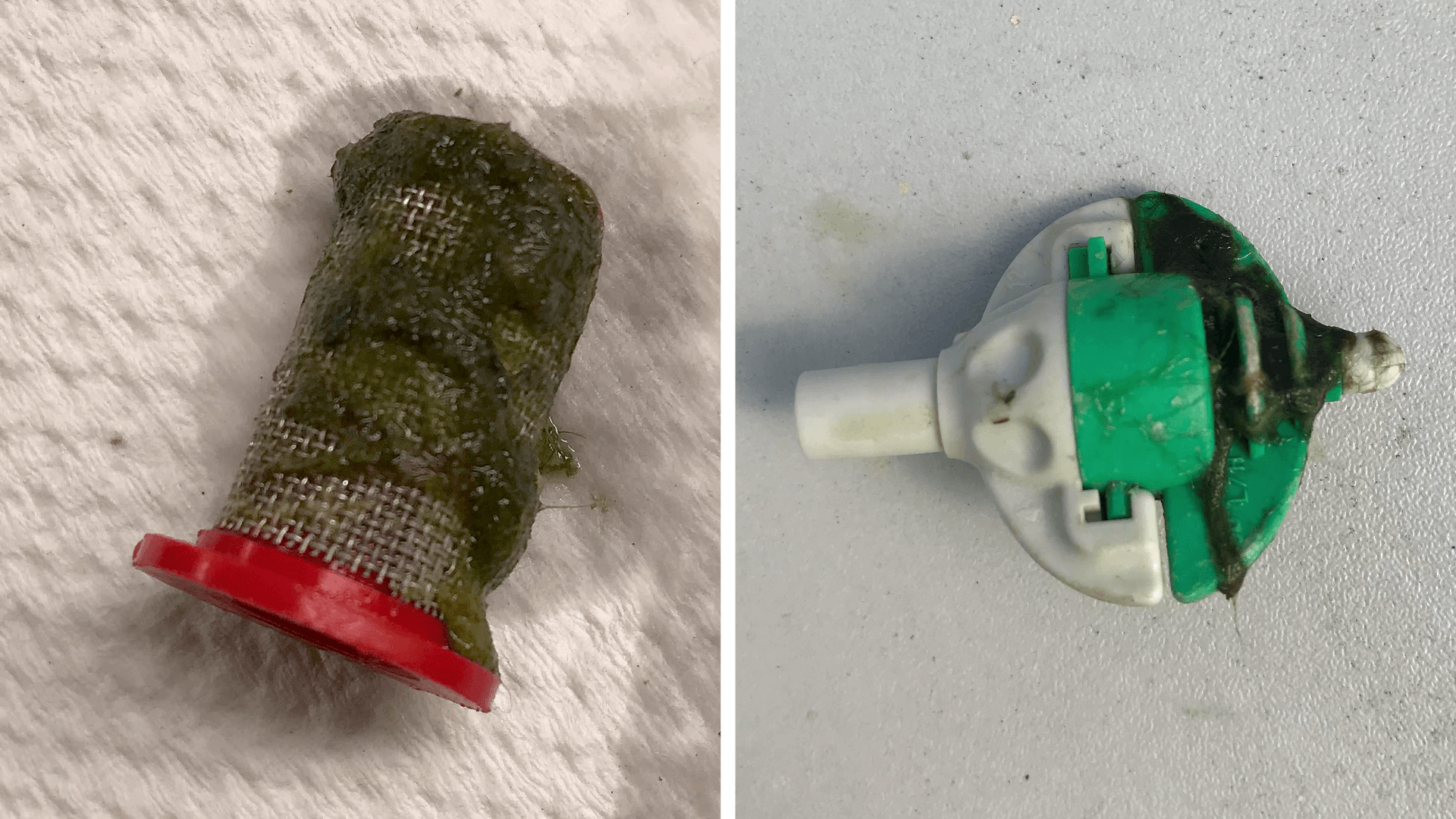
And we know the unclogging pipes and sprinkler heads is a very tedious, time-consuming job. So the functionality aspect of being able to move that water supply through a nice, clean irrigation system is very important.
Drainage Issues
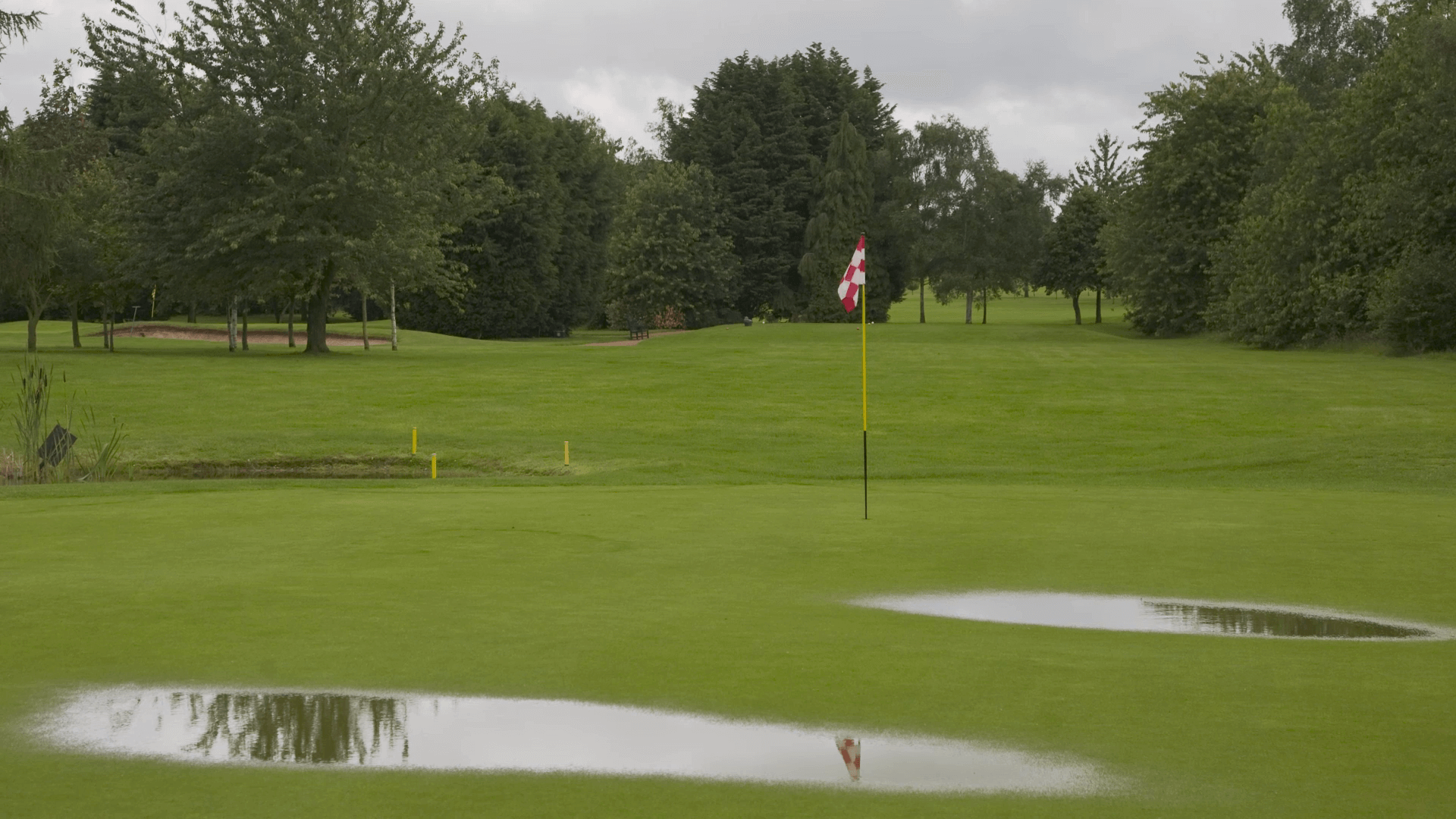
There are lots of aspects to drainage, as well. You need to make sure you have drainage away from the golf courses, away from the greens, down the canals, ditches, and laterals. You need to be able to allow that water to flow off the course, and if you have too many weeds or algae in those systems it can really back it up and cause flooding. Flooding can, of course, lead to a lot of turf diseases if the water can’t flow off.
Algae Buildup
Another aspect of functionality is algae buildup. If you have too much algae in the irrigation water itself, it can build up in your turf layers. So too much algae (essentially organic matter) in those turf layers can go down there and cause anoxia and what's called black layer. These issues can lead to the release of sulfides which interact with different metals and minerals, causing the overall cause stunting, discoloration, yellowing of turf grass. All of this from that buildup of organic matter from algae in the irrigation water.
So the functionality aspect of managing these golf course irrigation water is very, very important on a lot of fronts.
Overall Water Quality
The last category we want to talk about today is overall water quality. There are a lot of different aspects of water quality that we can talk about and we're going to cover a few of those today.
Turf Impact
The first aspect is algae in the irrigation water. So this can be a source of algae that gets on the turf and causes turf algae which can really harm and discolor the turf grass.
Additionally too much algae in the irrigation water can cause your sand bunkers to turn green.
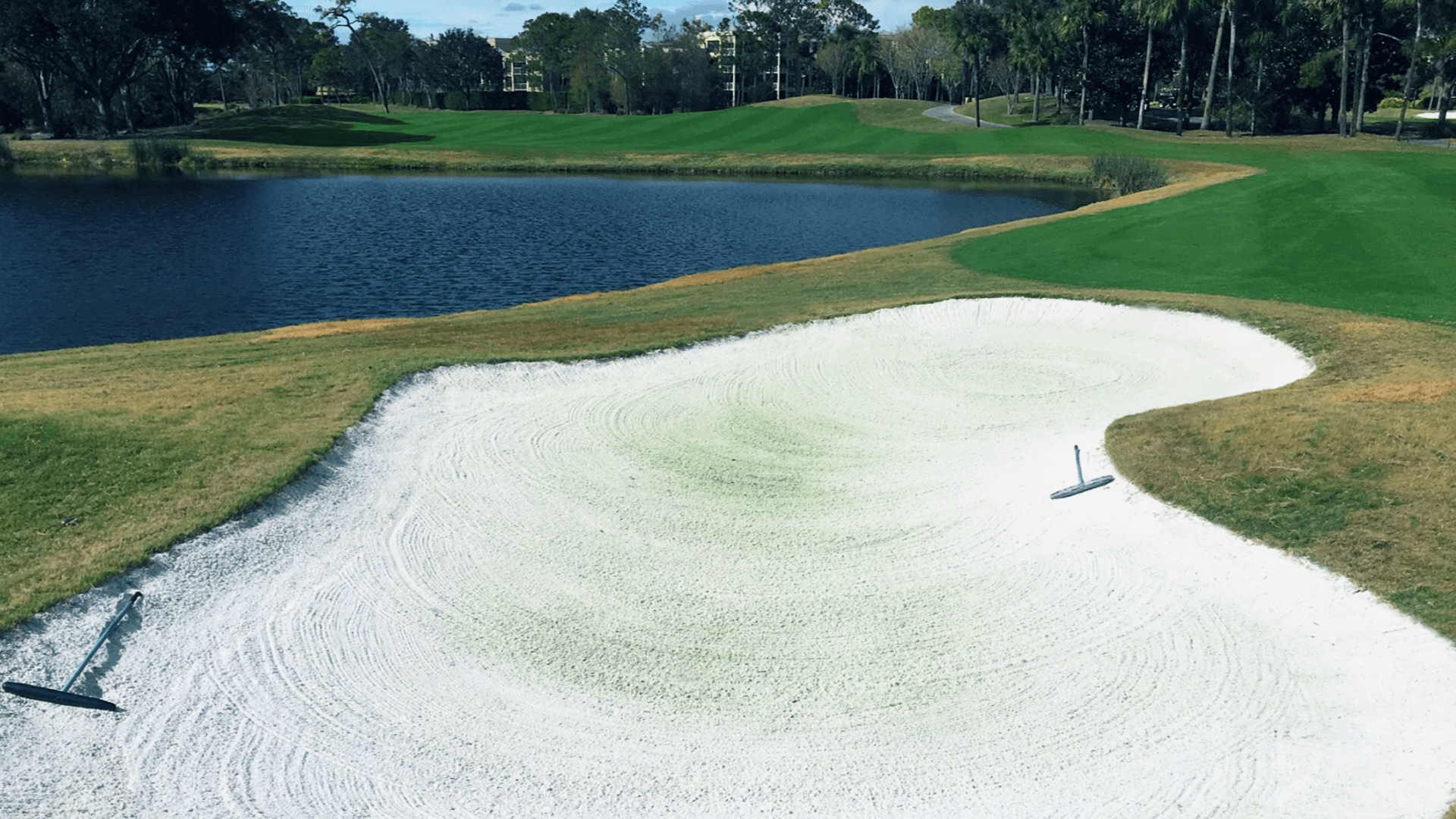
Some of these algae, cyanobacterium in particular can also produce toxins. These toxins can have an allopathic impact on the irrigated turf grass. And, overall, this can cause yellowing, decreased root growth, and decreased photosynthetic activity of the turf grass if you have these toxins in the irrigation water from the algae.
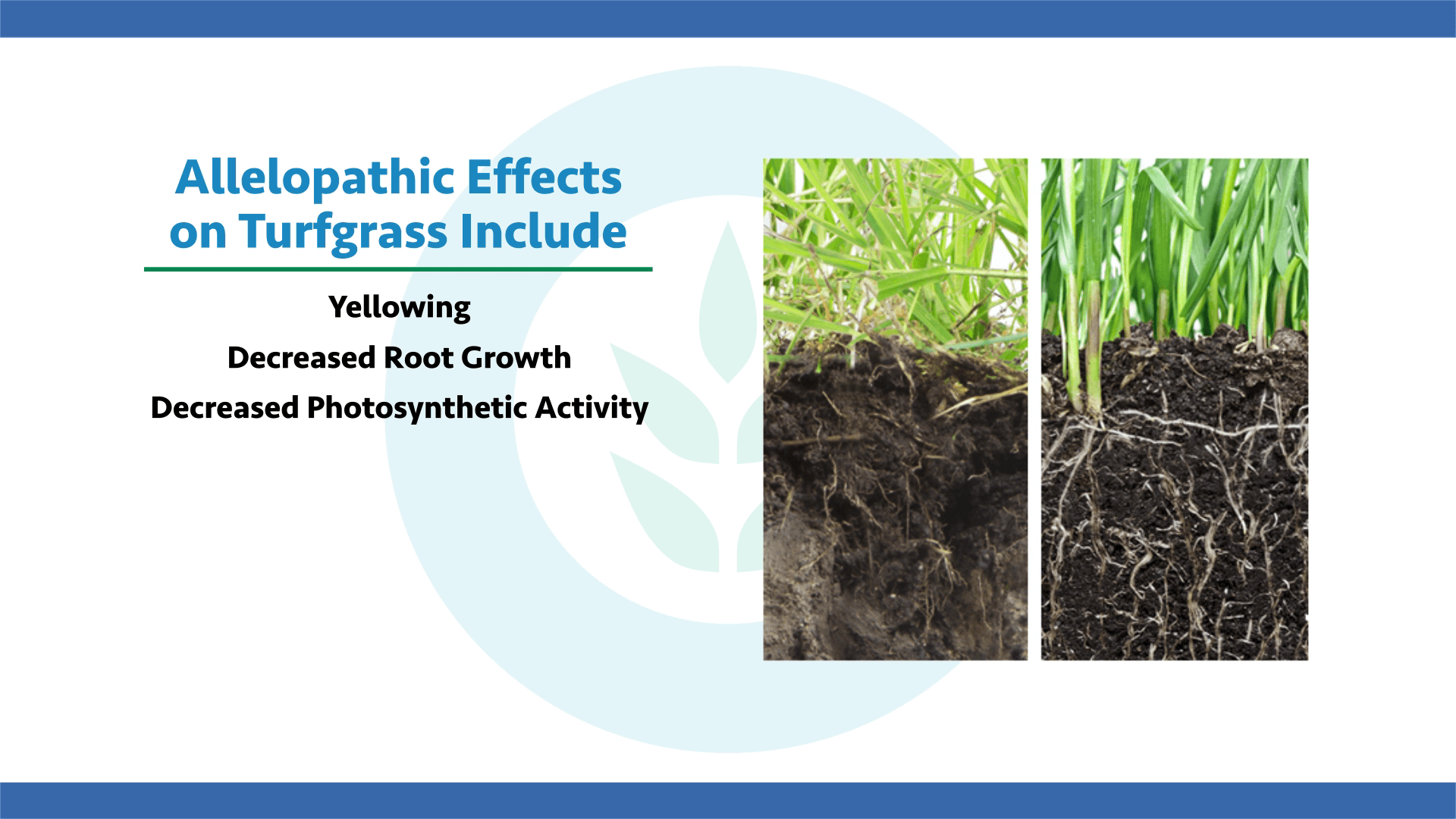
Wildlife/Human Impact
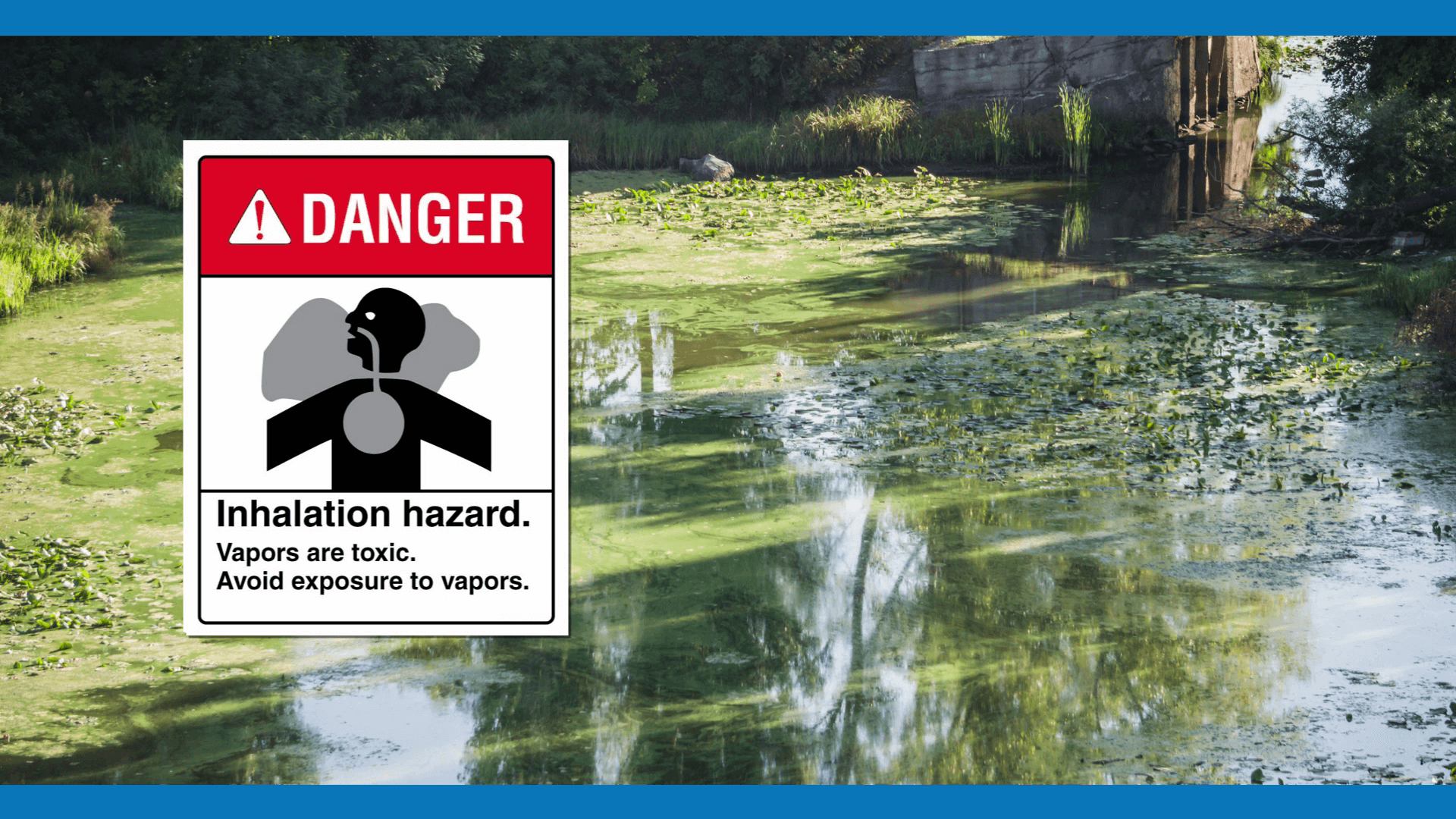
Unfortunately, these toxins can also impact wildlife. You certainly don't want people seeing sick birds or fish on the course from exposure to these cyanobacteria toxins. Additionally, these toxins can impact the patrons on the golf course. Even breathing the air coming from some of these toxic algae blooms can cause nausea and dizziness. Definitely not the experience you want your golfers to have while walking by your ponds, right?
Skin Rashes
Some of these toxins can cause skin rashes, too. So if golfers reach after their golf ball and get some of those toxic algae on them, they may develop a skin rash.
So there are a lot of different aspects to consider and control for when it comes to the impact of water quality in the ponds that you manage on wildlife and humans.
Vectors for Turf Disease
Some additional things to consider when it comes to water quality are vectors for turf diseases. Your waters can contain oomycotes or oospores, different fungal pathogens, Pythium, or phytophthora that can all infect the turf grass. So you don't want to be spraying these spores and spreading turf diseases from using this irrigation water.
Bicarbonate Considerations
Another component of water quality that we need to talk about is the increase in bicarbonates. As algae photosynthesize they use up all this free CO2 shifting to more bicarbonates in the system.
Now these bicarbonates can directly negatively impact the turf grass in several ways:
- causing a decreased shoot and root growth.
- reducing the uptake of nutrients by the turf grass, specifically phosphorous and a lot of your micronutrients.
- making it more difficult to manage the sodium absorption ratio (as you have more bicarbonates in the system)
- decreasing the filtration capacity of the water to go through the soils
- retaining more sodium in the soil layers
In addition to the bicarbonates, the photosynthetic process also increases PH. That higher PH in the irrigation, especially if you get over nine, can negatively impact nutrient uptake by the turf grass. It can also cause you to get less impact out of your fungicide programs, herbicide programs, and fertilizer programs. These impacts make it much more difficult and expensive to manage those turf grasses.
As you can see, the water quality component is very multi-dimensional and very complex, but very important to overall turf health.
Key Takeaways
Today we covered three main reasons it's important to manage golf course irrigation waters.
- aesthetics
- functionality
- overall water quality
We know you want your ponds and irrigation systems looking and smelling good. You want them free flowing, supplying quality water to those precious greens and precious turf grass.
Thanks for following along with us! Be sure to catch our next installment on approaches to managing golf course irrigation water.
As always get ahold of a SePRO professional if you have any questions on how to manage that golf course irrigation water appropriately.
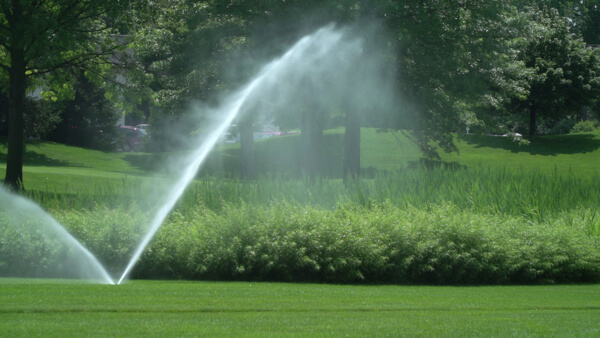
Approaches to Managing Golf Course Irrigation Water
Want to get Updates? Get the latest news by subscribing to our channel:

